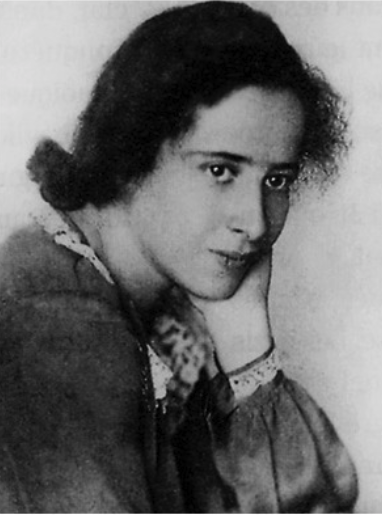Selected Quotations by Hannah Arendt on Totalitarianism
Selected quotations from The Anatomy of Totalitarianism
Selected quotations from The Anatomy of Totalitarianism

“The chief qualification of a mass leader has become unending infallibility; he can never admit an error.”
“The aim of totalitarian education has never been to instill convictions but to destroy the capacity to form any.”
“The result of a consistent and total substitution of lies for factual truth is not that the lie will now be accepted as truth, and truth be defamed as lie, but that the sense by which we take our bearings in the real world - and the category of truth versus falsehood is among the mental means to this end - is being destroyed.”
“Power corresponds to the human ability not just to act but to act in concert. Power is never the property of an individual; it belongs to a group and remains in existence only so long as the group keeps together. When we say of somebody that he is 'in power' we actually refer to his being empowered by a certain number of people to act in their name. The moment the group, from which the power originated to begin with … disappears, 'his power' also vanishes.”
“When evil is allowed to compete with good, evil has an emotional populist appeal that wins out unless good men and women stand as a vanguard against abuse.”
“There is a strange interdependence between thoughtlessness and evil.”
“Evil thrives on apathy and cannot exist without it.”
“Politically, the weakness of the argument has always been that those who choose the lesser evil forget very quickly that they chose evil.”
“The greatest enemy of authority, therefore, is contempt, and the surest way to undermine it is laughter.”
“The ideal subject of totalitarian rule is not the convinced Nazi or the dedicated communist, but people for whom the distinction between fact and fiction, true and false, no longer exists.”
“Politically speaking, tribal nationalism (patriotism) always insists that its own people are surrounded by 'a world of enemies'---'one against all'---and that a fundamental difference exists between this people and all others. It claims its people to be unique, individual, incompatible with all others, and denies theoretically the very possibility of a common mankind long before it is used to destroy the humanity of man.”
© Copyright 2024, Ron Liskey